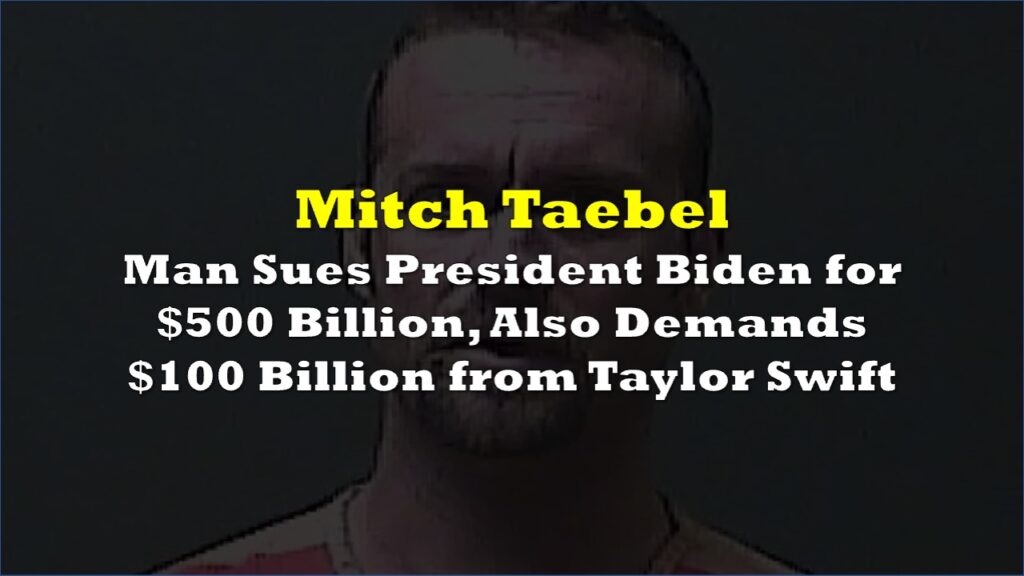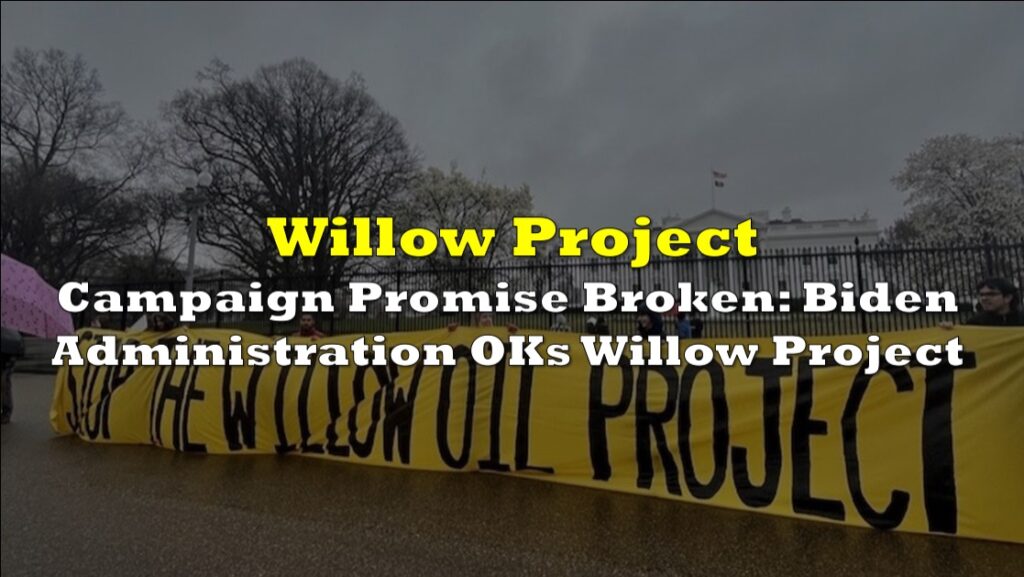After US President Joe Biden’s historic releases from the Strategic Petroleum Reserve (SPR) sent the reserve to its lowest level in nearly 40 years, Republican lawmakers have introduced legislation to limit the White House from “raiding the SPR for political purposes.”

READ: Biden Bleeds Strategic Petroleum Reserve To Lowest Level Since 1984
Strategic Production Response Act
Republican senators, led by Louisiana Sen. Bill Cassidy, M.D. and Wyoming Sen. John Barrasso, introduced the Strategic Production Response Act, which aims to “replenish the SPR and prioritize American energy production.” In a nutshell, the proposed bill “would prohibit the Secretary of Energy from tapping the SPR for reasons other than a severe energy supply interruption until the Secretary of the Interior issues a plan to increase oil and gas production on federal lands and waters.”
“The Biden administration agenda is to choke off energy development on federal land. Our legislation will prevent President Biden from raiding the SPR for political purposes without boosting American oil production,” Barrasso said.
Cassidy argued that the Biden administration has made a concerted “effort to go after fossil fuels from the wellhead to the gas pump.” The SPR Act is supposed to reprioritize energy security.
The Biden administration has a comprehensive & coordinated effort to go after fossil fuels from the wellhead to the gas pump. Just introduced the Strategic Production Response (SPR) Act reprioritizes our energy security despite Biden’s war on American energy. pic.twitter.com/8umCdqaPmg
— U.S. Senator Bill Cassidy, M.D. (@SenBillCassidy) January 26, 2023
The bill, if enacted, would require the Interior Secretary to submit a plan to increase oil and gas production to Congress’ energy committees within 60 days after future drawdowns from the SPR.
A similar bill has been introduced in the House–HR 21–which states that the plan of production increase on federal lands must have the same percentage of increase as the percentage of petroleum drawdown from the SPR. The plan should also not include a total increase in the percentage of federal lands itself.
Today, House Republicans are not only working to deliver on our commitment to energy security with the Strategic Production Response Act, but we are also restoring a transparent, accountable government by bringing this bill to the floor under an open amendment process.
— House Republicans (@HouseGOP) January 26, 2023
Georgia Rep. Andrew Clyde introduced an amendment to HR 21 providing for the Biden administration to submit a plan to Congress “addressing his misuse of our SPR prior to the next drawdown.”
It’s time for accountability.
— Rep. Andrew Clyde (@Rep_Clyde) January 26, 2023
The Strategic Production Response Act requires the Biden Administration to produce a plan to refill our SPR—which Biden has drained to historically low levels.
My amendment ensures that plan is submitted to Congress before the next drawdown occurs. pic.twitter.com/RS5yveZ3f2
Earlier in 2022, the Biden administration authorized the release of 180 million barrels or 1 million barrels per day for six months — the most ever in the reserve’s history — as a way to bring down skyrocketing gas prices amid Russia’s invasion of Ukraine, a surge in demand as consumers emerged from the pandemic, and US producers initially struggling to raise output.
The drawdowns have seemingly temporarily stopped in 2023 as the reserves continue to maintain the same four-decade low level. However, Biden said that it would authorize the release of more oil from the emergency reserve in early 2023 to cut gas prices.
Secure Auction for Energy Reserves Act
Earlier, Barrasso also introduced the Secure Auction for Energy Reserves Act, which would prohibit the federal government from selling SPR stocks to China or other hostile countries. The House passed a similar bill earlier this month, the Protecting America’s Strategic Petroleum Reserve from China Act, by a vote of 331-97.
“China is profiting from President Biden’s political abuse of the Strategic Petroleum Reserve,” Barrasso said in a statement. “Meanwhile, America has become more vulnerable to true energy and national security emergencies.”
The legislative move would prohibit SPR sales to China and other hostile nations, as well as state-owned firms that acquire oil from Russia, Iran, and other sanctioned countries.
“Adversaries cannot be allowed to benefit from America’s security reserve,” Barrasso added.
The Biden administration was widely chastised after it was revealed that it had sold SPR to China, which allegedly utilized the stockpiles to supplement its own reserves. The White House argued that the Department of Energy is “required by law to sell it ‘in a competitive auction to the highest bidder,’ regardless of whether that bidder is a foreign company.”
“The Republican members of Congress criticizing President Biden now do not appear to have raised concerns about the sales under President Trump. And, so far, they seem pretty silent about whether they think President Trump was wrong,” White House spokesman Ian Sams said in an interview at the time.
“The President would veto it”
The White House made its manifestation clear about its thoughts on HR 21 and other similar bills proposed, saying if Congress were to pass the bill, “the President would veto it.” Instead, the president characterizes the bill as a move that “will jeopardize our energy security and increase gas prices for working families.”
In a statement, the Biden administration defended the historic SPR release, touting that gasoline prices are $1.60 per gallon lower than their peak this summer and below the levels of what it was before the Russian-Ukraine war. The executive branch also cited the Treasury Department’s estimates that the release “reduced prices at the pump by as much as 40 cents per gallon.”
“If enacted, H.R. 21 would significantly weaken America’s ability to take such decisive action to increase supply and lower prices in times of crisis,” the White House said in a statement. “Putin has tried to use energy supply and high prices as a strategy to weaken the United States and Europe’s resolve to defend Ukraine. By interfering with the United States’ ability to release oil collectively, this legislation would help Putin’s war aims.”
The White House added that the proposed bill would substantially limit the administration’s capacity to enhance oil supply and avert price rises in the aftermath of natural catastrophes or pipeline failures, noting that this is something that administrations from both parties have done before.
The WH has issued a statement of veto on bill H.R. 21. Regarding the SPR
— Tracy (𝒞𝒽𝒾 ) (@chigrl) January 27, 2023
This bill limits the drawdown of petroleum in the Strategic Petroleum Reserve until the Department of Energy develops a plan to increase the percentage of federal lands leased for oil and gas production. pic.twitter.com/3xlYUS99kX
On the proposed amendment to submit a plan to Congress on increasing production on federal lands, the White House said that this “makes it harder to provide relief to Americans during energy disruptions globally and at home.”
“Moreover, there is nothing currently standing in the way of domestic oil production. Production is up by more than 1 million barrels per day under President Biden and is on track to reach a new record this year,” the White House added.
The SPR is for emergencies, not a band aid to your failed policies & falling poll numbers.
— kentstrang (@kentstrang) January 26, 2023
The Strategic Production Response Act would ensure the SPR is ONLY used for emergencies & requires the federal government to have a plan to increase production upon its use.
Fact check: FALSE.
— Energy and Commerce Committee (@HouseCommerce) January 25, 2023
H.R. 21, the Strategic Production Response Act, would have NO impact on DOE’s emergency authorities.
It would only apply to “non-emergency” SPR sales — NOT “in times of crisis.” https://t.co/hhwtrWwcj0
While most Republican lawmakers are throwing support into passing HR 21, some congresspeople and critics from the other side of the aisle are highlighting the effects of such bill once enacted as a law. This includes turning more public lands to oil wells and gas pumps, widening the field for oil producers.
HAPPENING NOW: House Republicans are showing their true priorities–bringing a bill to the floor that’s a #BigOilGiveaway and raises gas prices at the pump.
— Energy & Commerce Democrats (@EnergyCommerce) January 26, 2023
They are beholden to corporate special interests and their so-called “Strategic Production Response Act” is proof of that. pic.twitter.com/UfkFR7yEUk
Rather than helping hardworking Americans, the “Strategic” Production Response Act is a giveaway to Big Oil–the same industry that enjoyed record-shattering profits last year at the expense of working families.
— Rep. Shontel Brown (@RepShontelBrown) January 26, 2023
This bill is a win for Big Oil–not the American people.
The Strategic Production Response Act threatens to turn our public lands into wells, requiring lease sales whenever #oil is drawn down from the #StrategicPetroleumReserve. But America needs #MoreNature, not more oil. pic.twitter.com/sHVDjY9ehP
— Environment America (@EnvAm) January 26, 2023
Want to know who Republicans are working for? It's not you, unless you're an oil executive. Their Strategic Production Response Act could increase gas prices and air pollution, all while putting more money in oil companies' bank accounts. pic.twitter.com/dxtjASrxTY
— Rep. Tony Cárdenas (@RepCardenas) January 26, 2023
What’s Biden’s plan then?
Back in September, US President Joe Biden’s administration said it is looking at refilling its oil reserves should crude oil prices drop below US$80 a barrel. The prices have traversed the levels below that said mark but the White House moved the price target lower in October after it announced its plan to release an additional 15 million barrels of oil.
“The Administration is announcing its intent to use SPR repurchases to add to global crude oil demand at times when the price of West Texas Intermediate (WTI) crude oil is at or below about $67 to $72 per barrel,” the White House statement then read.
The WTI crude futures dipped below the $72-mark back in December before climbing back up to where it now stands at above $80.

In one of his dispatches, Credit Suisse contributor Zoltan Pozsar surmised that Biden’s “plan [of refilling reserves when prices hit low] is hard to reconcile with OPEC+’s price target near $100 per barrel.” In a hypothetical, the investment strategist drew the line from US refilling its reserves with discounted Russian export, with Moscow pegging the price to a gram of gold.
“But if the West is looking for a bargain, Russia can give one the West can’t refuse: ‘a gram for more’. If Russia countered the price peg of $60 with offering two barrels of oil at the peg for a gram of gold, gold prices double,” Pozsar explained. This could, in turn, potentially skyrocket the price of gold to around the $3,600 mark.
READ: Zoltan Pozsar: Gold At $3,600 Is Not Improbable If US Refill Reserves With Russian Oil
But for now, what is certain is Biden’s veto on the proposed bill. If Congress agrees to override the veto, the House and Senate must revisit the bill or the vetoed portions of the measure individually. If the bill or its vetoed items are approved by two-thirds of the members of each House, the measure or items become law.
Information for this briefing was found via White House, Congress, Fox News, and the sources mentioned. The author has no securities or affiliations related to this organization. Not a recommendation to buy or sell. Always do additional research and consult a professional before purchasing a security. The author holds no licenses.









